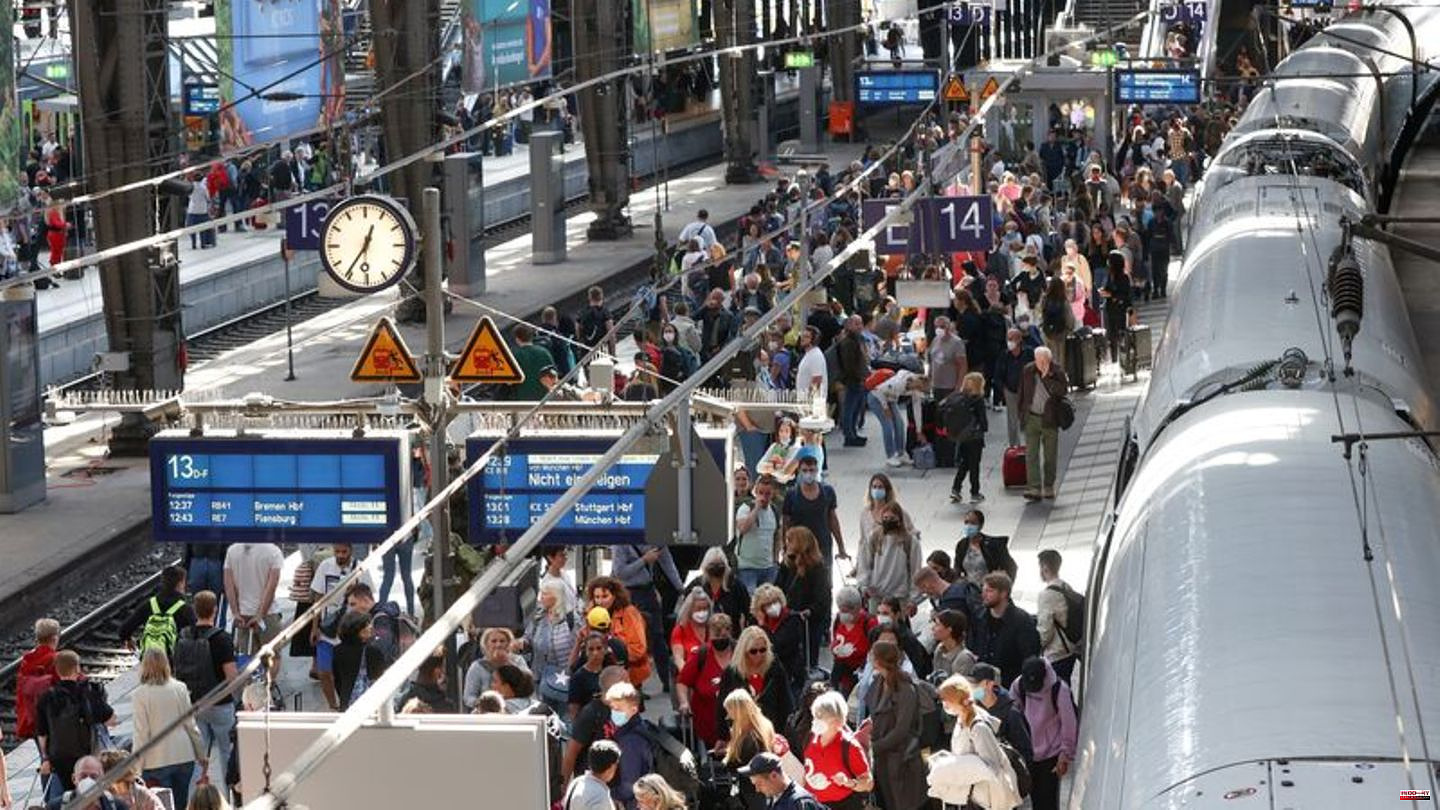Fare zones, rings, days of the week, after 9:00 a.m., with a child, without a bike, over 65, and so on and so forth. Buying tickets for bus and train is sometimes a puzzle. In the summer, thanks to the flat-rate 9-euro tickets, none of that mattered - but the popular special tickets are now passé. A successor has made it into the relief package of the traffic light coalition: a simple, nationwide ticket as a permanent offer. The federal government wants to make an extra 1.5 billion euros available for this every year if the federal states add the same. Many questions are still open. The price will be higher, aiming for between 49 and 69 euros. That changes a lot.
regular customers:
Whether the monthly ticket for 49 to 69 euros pays off for regular customers depends on the location and route. If you only travel within your own city, you can expect a more or less large discount. In Berlin, for example, the monthly ticket costs 86 euros. If you drive regularly and book them as a subscription, you may already be cheaper at a good 63 euros per month than with the planned ticket. In Frankfurt, on the other hand, the cheapest version of the subscription already costs around 77 euros, while in Paderborn it only costs around 55 euros.
Things are clearer for people who commute from the outskirts to inner cities. For them, the planned offer is worthwhile in most cases. Because up until now, the following has applied to the tariffs: the further, the more expensive. If you commute the 50 kilometers between Lüneburg and Hamburg, you pay at least around 187 euros a month for a subscription. If the unit price comes, then the following applies: the further, the greater the savings. When? "Our goal should be to have a new ticket by the beginning of 2023 at the latest," said Federal Transport Minister Volker Wissing (FDP) of the VRM media group.
Car Commuter:
Many have got used to it: traffic jams every morning, ordeals on the main roads in the big city. A new, permanently cheap ticket for buses and trains could make some people ponder - and maybe make them switch. However: bus and train travel is in most cases already cheaper than owning a car. Because this costs several hundred euros every month. Many drive cars anyway, the price is not the main argument for them.
trippers:
The 9-euro ticket has made itself felt primarily in tourist destinations. Many took advantage of the opportunity for inexpensive excursions. That should change with a successor solution for 49 to 69 euros. Because for occasional day trips, especially with several travelers, the existing state train tickets or the nationwide Quer-durchs-Land-Ticket are often cheaper.
Villager:
If buses or trains rarely stop nearby, even the cheapest ticket is of little use - as in many villages. At more than every third stop in Germany, according to calculations by the Deutsche Bahn subsidiary Ioki, you can't even drive in one direction or the other once an hour. The ADAC motoring club is also warning that gaps in the public offering should continue to be closed.
According to the Association of German Transport Companies (VDV), there must not only be money for cheaper tickets, but also for more buses and trains. "Otherwise, services will have to be canceled extensively in the coming year, since they can no longer be financed with the available funds," adds the Federal Association of Rail Transport.
The family:
"The family component is missing," criticizes Karl-Peter Naumann, honorary chairman of the Pro Bahn passenger association. In any case, free child transport like the 9-euro ticket has not yet been announced. That will discourage some from switching to buses and trains. "For drivers, however, it makes no difference in terms of costs whether they take their children with them."
Long-distance travelers and long-distance commuters:
The ICE train from Berlin to Wolfsburg takes a good hour in the morning, a connection that commuters also use. If they wanted to use the new ticket, they would have to spend more than three hours on local trains - not a good alternative. The same applies to long-distance trips through Germany, unless you have a lot of time. But if you have a lot of time, you can also secure saver price tickets for long-distance transport from 17.90 euros and travel with the ICE.
Financial poker between the federal and state governments:
In order for the new ticket to come at all, the countries should be on board. So far they have been fighting hard with the federal government for a second look at the normal regionalization funds with which they order services from the transport providers. Normally, 9.4 billion euros come from Berlin this year, plus a billion from another pot. There is an acute need for action due to the increased operating costs for buses and trains. So the big arithmetic begins.
If the 9-euro ticket had been extended, it would have cost the federal government 14 billion euros a year. Now it should be 1.5 billion euros, and the traffic light wants "at least the same amount" from the countries. The chairwoman of the transport ministers, Bremen Senator Maike Schaefer (Greens), referred to the necessary votes on how high the share of the countries should be for which ticket. Next stop is a special meeting with Wissing on September 19th. Schaefer made one thing clear: "Personally, I think 69 euros as a follow-up ticket is too high, even if it should apply nationwide for the whole of Germany."







